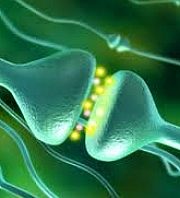What is ALS?
Amyotrophic Lateral Sclerosis (ALS) is a progressive neurodegenerative disease that affects the motor neurons in the brain and the spinal cord. As the motor neurons die, the brain is unable to control the muscles involved. This is how the paralysis associated with ALS happens.
There are two different types of ALS, familial and sporadic affecting around 20,000 people in the United States. Only 5-10% of people have familial ALS, which means immediate family members have ALS also and it was inherited. Research suggests it is autosomal dominant inheritance in those families, so there would be a 50% chance that a child would inherit the disease. The other type, sporadic, is seen in the other 90-95% of the cases. This means that the person, to the best of our abilities, has a sporadic genetic mutation causing the disease. If a person has more than one mutation, they would have an earlier onset of the disease than someone with only one mutation. Some research is suggesting a link between concussions and ALS. Other research is just now revealing the possible genetic mutations causing ALS.
Types of Mutations
There are a lot of different mutations that can cause ALS. One of the common mutations that have been researched is the SOD1 mutation on chromosome 21 which causes abnormal protein deposits that aid in the degeneration of motor neurons. Not everyone with ALS has this mutation though. A study in Nature looking at fALS (not looking at SOD1) reported finding a faulty enzyme, Ubuiquilin-2, that is supposed to break down ubiquinated proteins. If the enzyme isn’t functioning, the proteins accumulate in the lower motor neurons and upper cortical motor neurons and block normal transmission of brain signals in the spinal cord and brain which lead to the paralysis. This build up is also seen when people have mutations in TDP-43 and C9ORF72 genes which cause the enzyme to malfunction in other ways.
As seen in the picture below, there are many ways in which the motor neuron can become damaged and die in ALS. Since there are many variations of the disease, it has been difficult to find medicines to treat it.

So… Is it inherited?
Unfortunately as with a lot of science, there is a lot of ambiguity in the research attempting to solve the genetic mechanisms of ALS and if it is inherited or not. Without the knowledge of family members with the disease, a neurological exam could not reveal if a person has the familial vs sporadic version of the disease. Both forms have been seen to have some of the same mutations. Currently, there are variants of other genes that are inherited that have been seen to cause a greater susceptibility to developing ALS, but no one “tell all” gene that can show that the disease is directly caused by inheritance. Hopefully with the new understandings of the mechanisms of the disease, researchers will be able to pinpoint ways of diagnosing and treating the disease with the specificity of that person’s genetic mutation.
Heritability of ALS
